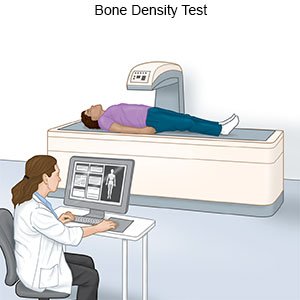Anorexia
Medically reviewed by Drugs.com. Last updated on May 6, 2024.
Anorexia is an eating disorder that can lead to severe weight loss and an intense fear of weight gain. Anorexia may cause you to stop eating or to eat fewer calories than your body needs. The weight loss is not related to another medical condition. Anorexia is also called anorexia nervosa.
WHILE YOU ARE HERE:
Informed consent
is a legal document that explains the tests, treatments, or procedures that you may need. Informed consent means you understand what will be done and can make decisions about what you want. You give your permission when you sign the consent form. You can have someone sign this form for you if you are not able to sign it. You have the right to understand your medical care in words you know. Before you sign the consent form, understand the risks and benefits of what will be done. Make sure all your questions are answered.
Healthcare providers will check your vital signs.
Vital signs include blood pressure, heart rate, breathing rate, and temperature. The providers will also ask about your pain.
An IV
is a small tube placed in your vein that is used to give you medicine or liquids.
Medicines:
- Antianxiety medicine decreases anxiety and helps you feel calm and relaxed.
- Anticonvulsants control seizures and decrease violent behavior, aggression, or irritability. This medicine may help control your mood swings.
- Antidepressants help decrease or prevent the symptoms of depression.
- Mood stabilizers help control mood changes.
- Vitamin and mineral supplements may be needed if you are malnourished. You may need to take a mineral supplement, such as potassium. You may also need to take multivitamins to replace what your body has lost.
Tests:
- Blood tests will show if you are getting enough iron, calcium, and other nutrients.
- Urine tests may be used to check for signs of dehydration.
- Bone density pictures may be used to check for bone loss that anorexia can cause. Your risk for bone loss is higher if you are female and no longer have a monthly period.

- An EKG may be used to check your heart's electrical activity. Anorexia can lead to heart rhythm problems.
Treatment:
- Nutrition therapy means healthcare providers will help you create a plan to reach a healthy weight for your height. The plan includes appropriate exercise and nutrition. You may also need extra fluids if you are dehydrated.
- Total parenteral nutrition (TPN) is nutrition given through a vein because you have trouble swallowing or digesting food. The nutrition is put through a large IV catheter, such as a central line.
- A nasogastric (NG) tube may be put into your nose and down into your stomach. Liquid food may be given through your NG tube.
- Cognitive behavioral therapy (CBT) is used to help you learn the reasons you are unhappy with your body. A therapist will work with you to change your behaviors and decrease your negative feelings about food and your weight.
- Group or family therapy is a meeting you have with other people who also have anorexia. Family therapy is a meeting you have with healthcare providers and your family members. Group and family meetings are a time when you talk with others about ways to cope with anorexia.
Treatment options
The following list of medications are related to or used in the treatment of this condition.
RISKS:
Anorexia can cause serious health problems from malnutrition. Malnutrition means your body is not getting enough calories, protein, and other nutrients to be healthy. Your bones might become brittle and be at increased risks for fractures. Your heart, brain, and other organs can be damaged from lack of nutrition.
CARE AGREEMENT:
You have the right to help plan your care. Learn about your health condition and how it may be treated. Discuss treatment options with your healthcare providers to decide what care you want to receive. You always have the right to refuse treatment.© Copyright Merative 2024 Information is for End User's use only and may not be sold, redistributed or otherwise used for commercial purposes.
The above information is an educational aid only. It is not intended as medical advice for individual conditions or treatments. Talk to your doctor, nurse or pharmacist before following any medical regimen to see if it is safe and effective for you.
Learn more about Anorexia
Treatment options
Care guides
Symptoms and treatments
Medicine.com guides (external)
Further information
Always consult your healthcare provider to ensure the information displayed on this page applies to your personal circumstances.
